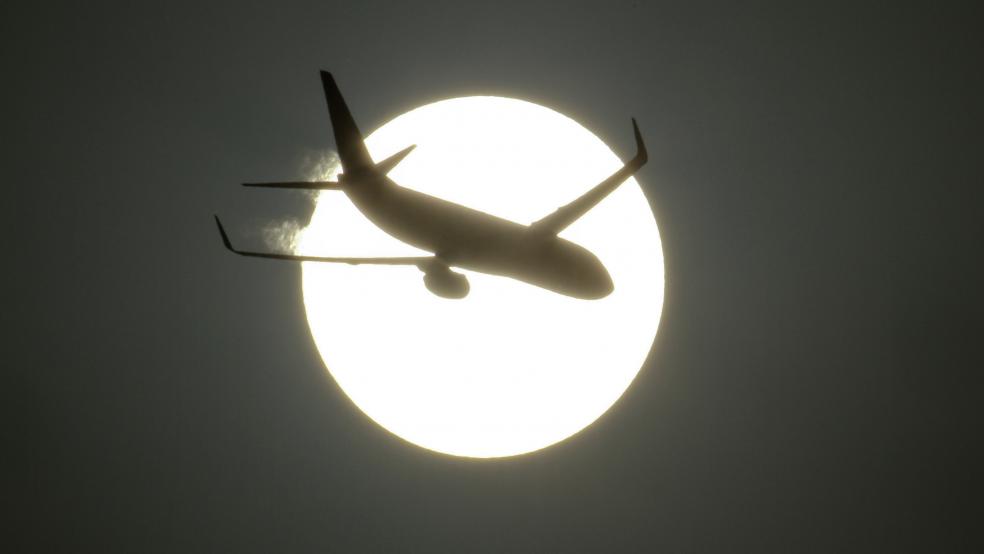After years of recession-spawned staycations, the travel bug is hitting Americans again. Three-quarters of travel agents saw an increase in sales this year and 90 percent expect further growth in 2016, according to the U.S. Tour Operators Association. But travel is changing.
Related: 6 Tips for Booking Holiday Travel at the Last Minute
Here are the trends driving the industry in 2016:
Airplanes are getting more crowded and more uncomfortable. Get ready for more squabbling over personal space on airplanes. Most of the large airlines are introducing new so-called “slimline” seats that will cram even more people into the economy class of a plane. Newly merged airlines are also focusing on “capacity management,” filling all available seats rather than adding flights. “Planes are flying full,” says Patrick Surry, chief data scientist at Hopper.com. “You’re not likely to get a last minute discount or have an empty seat beside you.”
But flying is getting cheaper. Thanks to record-low oil prices and new competition from cheap international carriers, the cost of high flying is going way down. Hopper travel data shows that the average price for a ticket in January will be at a three-year low. Part of that decline, however, is artificial as airlines “unbundle” fees from tickets, and charge passengers separately for things like choosing a seat or checking a bag.
‘Sharing economy’ lodging goes mainstream. Whether travelers are flying via NetJets, staying in an AirBnB or grabbing an Uber to get to the airport, the sharing economy will continue to disrupt the way that we travel in 2016. That could be good news for consumers. A study by business travel and expense consultant Certify found that travelers paid more than 10 percent less for ride share services than they would have for taxis, and rated their stays at AirBnBs higher than they rated nights at hotels.
Europe is on sale. Despite the recent Euro rally, the dollar remains relatively strong against the continent’s currency. That means that the costs of traveling to Europe and staying at a hotel or bed and breakfast will likely continue to be bargains for American travelers.
Related: 6 Global Cities to Visit Now That the U.S. Dollar Is Strong
National Parks are celebrating. The National Park Service is celebrating its 100th anniversary this August, just in time for summer road trip season. The agency will be hosting centennial events at parks throughout the country. With gas prices at 10-year lows, more people will be taking that classic summer road trip this summer.
Multigenerational trips are becoming more popular. Thanks to geographically disparate families and (some) Boomer grandparents with money to burn, multigenerational trips are on the rise. “The grandparents are deciding that the best investment they can make in building family bonds is to create shared experiences through travel,” says USTOA Chief Terry Dale.
These aren’t one-in-a-lifetime trips, either. Of those who took a multi-generational trip last year, 85 percent had plans for another within the year, according to AARP Travel Research. The trend reflects
Hotels are more expensive. Even as North American hotels added 100,000 new rooms last year, the new supply hasn’t kept up with demand and occupancy rates are high. The Global Business Travel Association projects that prices will rise 4.7 percent in the United States and 2.5 percent globally. Another reason that prices may go up in 2016: The Starwood-Marriott merger, projected to close in 2016, will dampen competition.
Related: 8 Tips to Save on Spring Break Travel
Rewards programs are less generous. That Starwood-Marriott acquisition is also bad news for users of the Starwoods Preferred Guests rewards program--one of the industry’s best--which will likely be diluted post-merger.
Airline consolidation has shown that rewards programs typically become less consumer friendly post-merger. More airlines are now moving away from offering frequent fliers rewards based on the number of miles travels and are instead basing rewards on the cost of tickets. “That’s good for the business traveler who pays high fares and books at the last minute, but it’s not good for leisure travelers who book far in advance and fly less frequently,” says Jeff Klee, CEO of CheapAir.com.
Fees are getting worse. Both airlines and hotels are relying more heavily on fees as a source of revenue. Hotel chains next year will be raising prices for things like WiFi and room service, according to the GBTA report.
Vacation rentals are surging. Due partly to the increase in hotel prices and the rise of AirBnB, and shifting travel mindsets, vacation rentals have become a far more popular option. The number of travelers who’ve stayed in a vacation home or apartment has more than doubled in the past three years, and demand is expected to continue. “People are starting to appreciate the additional space and amenities like free Wi-Fi or a private pool you can get with vacation rentals,” says Jen O’Neal, CEO and founder of Tripping.com. “People are starting to see the value of how far their money takes them with vacation rentals versus hotels.”
More travelers cruising. Despite some public relations fiascos in recent years, the popularity of cruises continues to grow. The industry expects 24 million passengers to sail in 2016, and 80 percent of travel agents expect to see an increase in demand next year, according to the Cruise Lines International Association. Top cruise trends include more interest in river cruises, new offerings in Asia, and demand for luxury amenities.
Cuba is the place to go. As U.S.-Cuba relations continue to thaw, travelers are clamoring to visit the island, which has been shut off from U.S. travelers for more than 60 years. The U.S. loosened travel restrictions to the island this year and may lift the travel ban entirely. A third of travel agents currently offer programs to Cuba, and more than half of them plan to increase their offerings in the near future, according to the USTOA.





